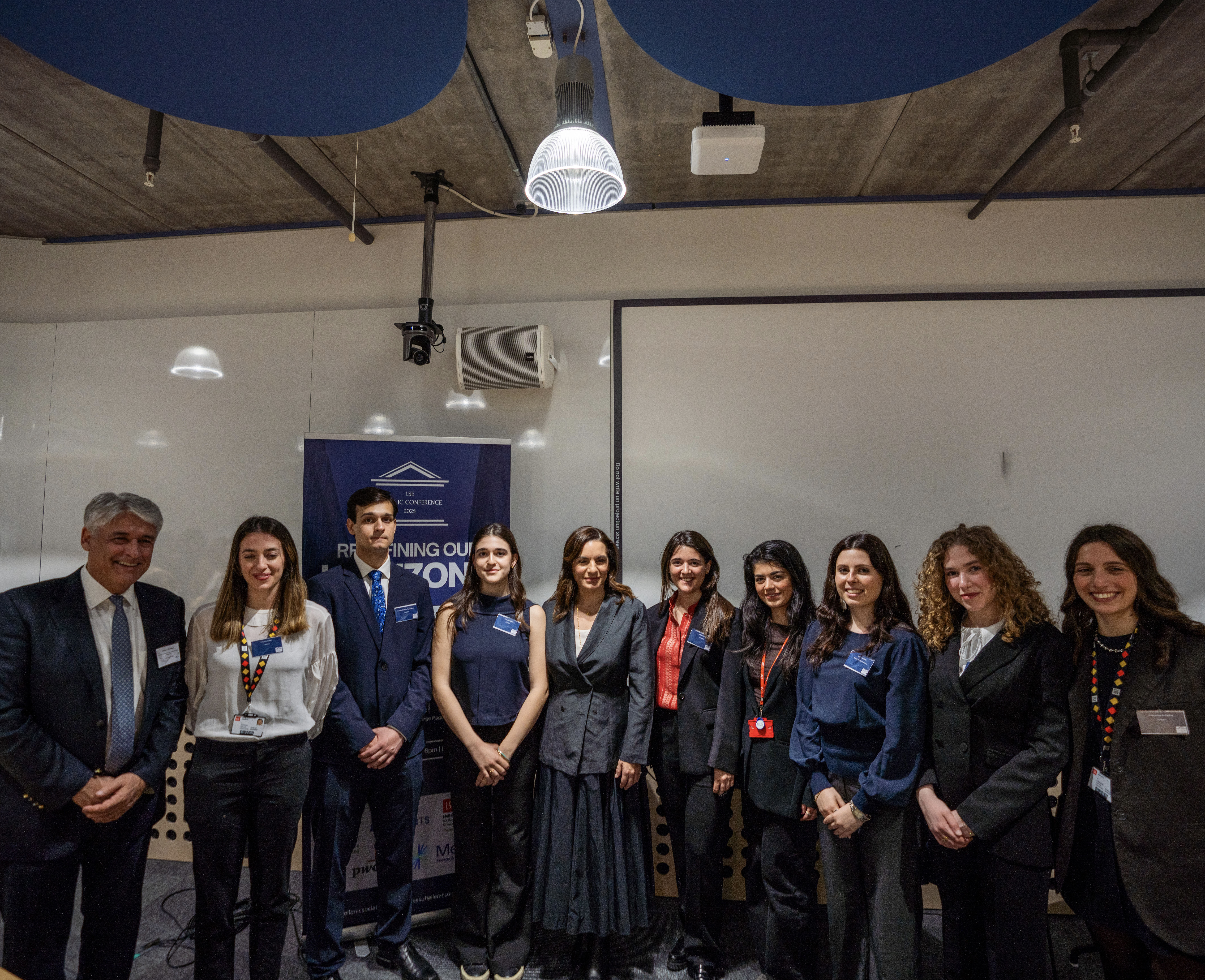By Annita Semina Petrides
In a time when political turbulence and uncertainty seems to be the norm, students at the London School of Economics collaborated to organise one of the most ambitious and successful student conferences of the year.
The LSE Hellenic Conference 2025, held on March 21 and 22, brought together policymakers, business experts and academics, including the former vice president of the European Commission Margaritis Schinas, the Greek Minister of Tourism Olga Kefalogianni, and Cyprus’ Deputy High Commissioner in the UK, Spyros Miltiadis.
Held across two full days, the conference provided a platform for dialogue on issues ranging from EU geopolitics and the new era of the Trump presidency, to evolving tourism challenges in Greece and the return of the Parthenon Marbles.
The opening was marked by a speech by Kefalogianni, who explored some of the goals of Greece on the issue of tourism for the new season. From the beginning of the conference, it was clear that this was not a mere academic gathering, but an inspiring showcase of the potential of the Hellenic youth abroad.
“The phrase ‘Greek Experts, Global Vision’ encapsulates the core idea behind the LSE Hellenic Conference,” said Iliana Frangiadaki, the president of the LSE Hellenic Conference. “Our vision was to build a network to unite and inspire students, academics and professionals by bringing together brilliant minds from politics, finance, consulting and law, to amplify the voice of the Hellenic diaspora.”
“I hope that we have created a long-lasting platform for the Hellenic community – one that, after the overwhelming success of our inaugural event, has already evolved into something that transcends those two days.”
One of the most anticipated sessions featured the former vice president of the European
Commission Schinas and professor Spyros Economides, who tackled some of the
most pressing questions in current affairs, as well as the recent rise of populist waves across the world.
In attendance was also Spyros Miltiades, the Cyprus’ deputy high commissioner, whose presence underscored the strong representation of Cyprus in the conference and
importance of supporting student-led initiatives and diplomacy abroad.
The conference was not just intellectually stimulating but also community building. Students,
professionals, academics and policymakers mingled during lunchtime receptions and a closing ceremony which celebrated the success of the conference and the hard work of the organising team.
While the conference brought together influential speakers and important ideas, what made it stand out was its foundation: a group of students, driven by heritage and purpose, who chose to invest their free time to create something meaningful and prove that there is indeed hope in the new generation.






Click here to change your cookie preferences